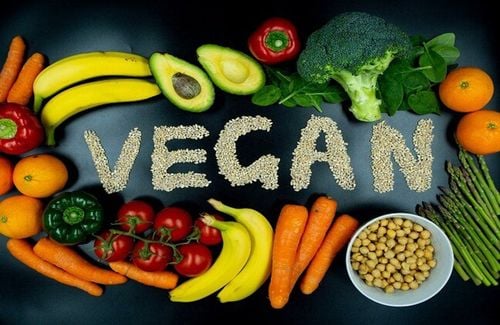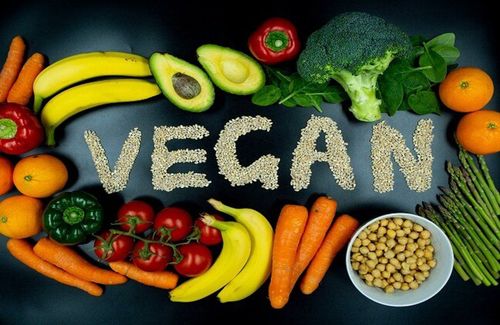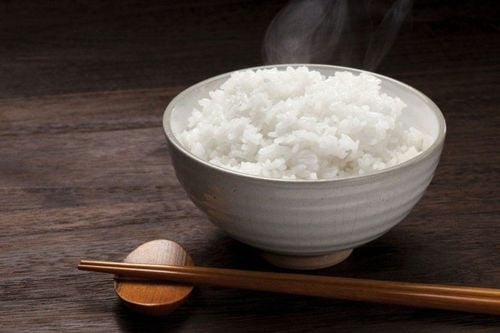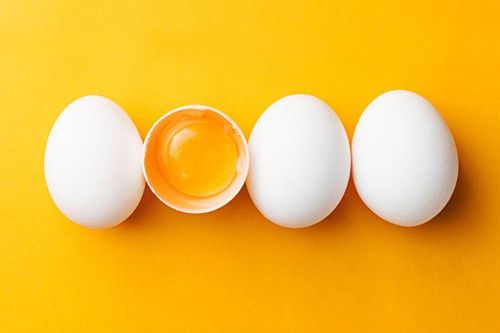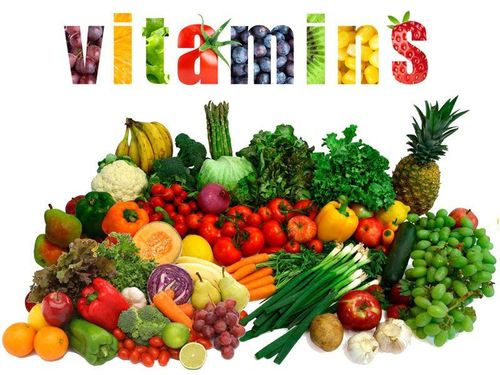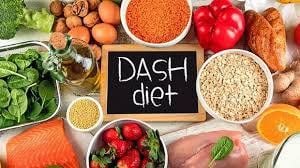This is an automatically translated article.
There are many concerns about vegetarian diets as well as problems with nutrient deficiencies including protein in vegetarian diets. However, many experts agree that if a vegetarian diet is well planned, it will provide the body with adequate nutrients thanks to high-protein vegetarian foods.
17 protein rich vegetarian food sources include:
1. Seitan - High Protein Vegetarian Food Seitan is a mock meat made from wheat gluten, and it's also a popular source of protein for many vegans. It's made from gluten, the main protein in wheat, so it's not like many other imitation meats that are made with soy. It will resemble the shape and texture of the meat when cooked.
Seitan is also known as wheat meat or wheat gluten, in 100 grams of seitan contains about 25 grams of protein. This makes it the richest source of plant-based protein on the list of foods chosen for vegetarians. In addition, Seitan is also a good source of selenium and contains small amounts of iron, calcium and phosphorus.
Seitan can be preserved by freezing. When cooking seitan can be fried, sautéed, and even watered. Hence it can be easily incorporated in many recipes. However, seitan should be avoided for people with celiac disease or gluten sensitivity.
2. Tofu, tempeh, and edamame Tofu, tempeh, and edamame are all derived from soybeans. Soybeans are considered a rich source of protein. This means they will provide the body with all the essential amino acids.
Edamame are young tofu with a sweet and grassy flavor that needs to be steamed or boiled before using and can be eaten alone or added to soups and salads. Tofu is made from curdled soybean milk that is pressed together in a process similar to making cheese. Tempeh is made by cooking and lightly fermenting mature soybeans before pressing them into a small mold.
Tofu doesn't have much flavor but is easily absorbed. And tempeh has a characteristic nutty flavor. Both of these can be used in a variety of recipes.
All three types contain iron and calcium and have about 10-19 grams of protein in 100 grams of edible. Edamame is rich in folate, vitamin K and fiber. Tempeh contains a good amount of probiotics, B vitamins and minerals like magnesium and phosphorus.
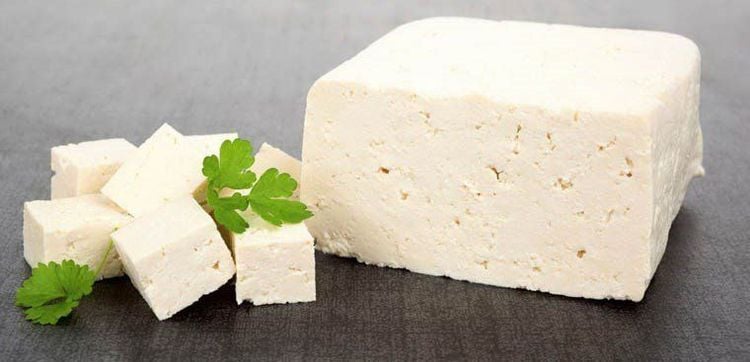
Đậu phụ là thực phẩm chay chứa nhiều protein phong phú
3. Lentils - a high-protein vegetarian food With 18 grams of protein per 240ml of cooked lentils, lentils are a good source of protein. We can use lentils in many different dishes from fresh salads to soups.
Lentils also contain a good amount of slow-digesting carbs, and with 240 ml of lentils provide about 50% of the recommended daily fiber intake. Furthermore, the type of fiber found in lentils has been shown to feed the good bacteria in the body's colon while promoting a healthy gut. Lentils may also help reduce your risk of heart disease, diabetes, excess body weight, and certain types of cancer.
In addition, lentils are also very rich in folate, manganese and iron. They also contain good amounts of antioxidants and other healthful plant compounds.
4. Green garbanzo beans and most beans Chickpeas, also known as garbanzo beans, are a legume that is high in protein. Both beans and chickpeas contain about 15 grams of protein with 240 milliliters of cooked beans. They are also an excellent source of complex carbs, fiber, iron, folate, phosphorus, potassium, manganese, and several beneficial plant compounds.
Furthermore, some studies have shown that a diet high in beans can lower cholesterol, help control blood sugar, lower blood pressure, and even reduce belly fat
5. Nutritional yeast Nutritional yeast is a deactivated strain of the yeast saccharomyces cerevisiae, commercially sold as a yellow powder. It has a cheese-like flavor, so it's a common ingredient in dishes like mashed potatoes and stir-fried tofu. Nutritional yeast can also be sprinkled on top of pasta dishes or even enjoyed as a tasty treat on popcorn.
This nutritional yeast's complete plant protein source provides 14 grams of protein and 7 grams of fiber in 28 grams of edible nutritional yeast. In addition, fortified nutritional yeast is also an excellent source of zinc, magnesium, copper, manganese and all the B vitamins, including B12.

Men dinh dưỡng cung cấp lượng protein cần thiết cho cơ thể người dùng
However, nutritional yeast supplementation is not common and should not be relied on as a source of vitamin B12 of this food to provide the body.
6. Durum and Teff Durum and Teff are ancient grains. Durum wheat is a type of wheat that contains gluten while Teff is derived from a grass, which means it will be gluten free. Durum wheat and Teff provide 10 - 11 grams of protein in 240ml of cooked solution. Therefore, this is a food with a higher content than other grains.
Both are excellent sources of other nutrients including complex carbs, fiber, iron, magnesium, phosphorus and manganese. They also contain a good amount of B vitamins, zinc and selenium.
Durum and Teff are versatile alternatives to common grains, such as wheat and rice. Furthermore it can be used in many recipes, from baked goods to porridge and rice.
7. Hemp - high protein vegetarian Hemp comes from the Cannabis sativa plant, which is notorious for being in the same family as the cannabis plant. However, hemp only contains a small amount of THC, the compound that produces the same narcotic effects as marijuana. Although not as prominent as other nuts, in 28 grams of hemp contains 10 grams of easily digestible complete protein. This ingredient is 50% more than chia and flax seeds.
Hemp also contains good levels of magnesium, iron, calcium, zinc and selenium. What's more, it is a good source of omega-3 and omega-6 fatty acids in a ratio considered optimal for human health.
Several studies have shown that the type of fat found in hemp can help reduce inflammation, as well as relieve symptoms of menopause and certain skin diseases.
Hemp can be added to your diet by sprinkling some in your morning smoothie or breakfast. It can also be used in homemade salad dressings or protein bars.
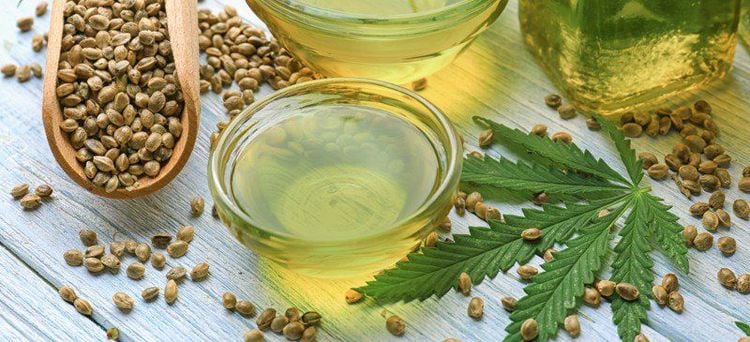
Cây gai dầu cũng chứa hàm lượng các vi chất quan trọng đối với cơ thể con người
8. Green beans - vegetarian food contains a lot of protein In 240ml of cooked green beans contain 9 grams of protein. Furthermore, a serving of chickpeas can provide 25% of the daily requirement for fiber, vitamins A, C, K, thiamine, folate and manganese.
In addition, green beans are also a good source of iron, magnesium, phosphorus, zinc, copper and some B vitamins.
9. Spirulina Spirulina is a food known as a nutritional powerhouse. . In 30ml of spirulina provides 8 grams of complete protein. In addition, it meets 22% of the daily requirement for iron, thiamin and 42% of the need for copper. Furthermore, spirulina also contains trace amounts of magnesium, riboflavin, manganese, potassium and small amounts of most other nutrients needed by the body, including essential fatty acids.
Plus, there is a natural pigment found in spirulina like phycocyanin, which seems to have powerful antioxidant, anti-inflammatory, and anti-cancer properties.
Some studies on the link between spirulina use and health show various health benefits such as: Stronger immune system and lower blood pressure to improve blood sugar and cholesterol levels blood.
10. Amaranth and quinoa Amaranth and quinoa are often referred to as classic or gluten-free grains, but these two don't grow from grass like other grains do. In 240 ml of cooked amaranth and quinoa seeds provide 8 - 9 grams of protein and this is a complete source of protein, which is rare in grains and pseudocereals. In addition, amaranth and quinoa are good sources of complex carbs, fiber, iron, manganese, phosphorus and magnesium.
11. Ezekiel bread and sprouted grain breads Ezekiel bread is made with organic produce such as: Whole grain sprouts and legumes. These include wheat, millet, barley and spelt, as well as soybeans and lentils. Two slices of Ezekiel bread contain about 8 grams of protein, more than regular bread.
The seeds and sprouts in the bread will increase the amount of healthy nutrients. Studies show that sprouted foods increase amino acid content. For example, in cereals and plant-based foods, the amino acid lysine is lacking, so application of sprouting increases lysine content while helping to increase overall protein quality. Likewise, combining grains with legumes can further improve the amino acid profile of bread.
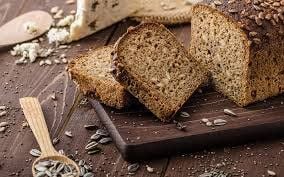
Bánh mì Ezekiel có chứa nguồn dinh dưỡng lành mạnh
In addition, sprouts also seem to increase the soluble fiber, folate, vitamin C, vitamin E and beta-carotene content of the bread. It also helps to slightly reduce the gluten content. As such, sprouted foods may enhance digestion in people who are sensitive to gluten.
12. Soy milk Soy milk helps with vitamins and minerals. So it can be a great substitute for cow's milk. In 240ml of soy milk, there are 7 grams of protein, calcium, vitamin D and vitamin B12.
13. Oats and oatmeal Oats are foods that can help add protein to your diet. In 120ml of dry oats provide about 6 grams of protein, 4 grams of fiber. In addition, it also provides more magnesium, zinc, phosphorus, folate. Although oats are not considered a complete protein food, they do contain higher quality protein than common grains like rice and wheat.
14.Raw Rice Raw rice contains about 1.5 times more protein than long grain rice, it includes brown rice and basmati. In 240ml of cooked rice will provide 7 grams of protein. In addition, they also provide fiber, manganese, magnesium, copper, phosphorus, B vitamins.
Unlike white rice, raw rice does not lose the bran layer. This is great from a nutritional perspective, as the bran contains fiber and many vitamins and minerals. However, it is also an arsenic hazard, which can accumulate in the bran of rice plants grown in contaminated areas.
Arsenic is a toxic trace element that can give rise to various health problems, especially when eaten regularly for long periods of time. To overcome this situation, before cooking rice should use a lot of water to boil. That can help reduce arsenic levels by up to 57%.
15. Chia seeds Chia seeds are derived from the Salvia hispanica plant, which is found in Mexico and Guatemala. In 35 grams of chia seeds will provide 6 grams of protein, 13 grams of fiber. What's more, these nuts contain good amounts of iron, calcium, selenium, and magnesium along with omega-3 fatty acids, antioxidants, and healthful plant compounds.
16. Nuts, nut butters Nuts and seeds are a great source of protein. In 28 grams of seeds contain from 5 to 7 grams of protein depending on the seed variety. In addition, nuts and seeds are also a good source of fiber and healthy fats, along with a number of minerals and vitamins such as iron, calcium, magnesium, selenium, phosphorus, vitamin E and several vitamins. group B. At the same time, they also contain beneficial antioxidants.
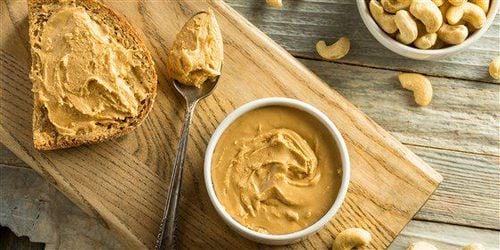
Các loại hạt, hạt bơ có chứa lượng protein nhất định tùy từng loại hạt
17. Protein-rich fruits and vegetables All fruits and vegetables contain protein, but the amounts are usually small. However, there are still some varieties that contain more protein. Vegetables with the most protein include: Broccoli, spinach, asparagus, artichokes, potatoes, sweet potatoes, and Brussels sprouts.
Protein deficiency in vegetarians should be of concern. This list can be used as a guide for anyone looking to incorporate more plant-based protein into their diet.
Nuts and seeds are an excellent source of protein. In 28 grams of seeds contain from 5 to 7 grams of protein depending on the seed variety. In addition, nuts and seeds are also a good source of fiber and healthy fats, along with a number of minerals and vitamins such as iron, calcium, magnesium, selenium, phosphorus, vitamin E and several vitamins. group B. At the same time, they also contain beneficial antioxidants.
Vinmec International General Hospital with a system of modern facilities, medical equipment and a team of experts and doctors with many years of experience in medical examination and treatment, patients can rest assured to visit. examination and treatment at the Hospital.
To register for examination and treatment at Vinmec International General Hospital, you can contact Vinmec Health System nationwide, or register online HERE.
Reference source: healthline.com
SEE MORE
Vegetarianism is not a panacea How can a vegetarian diet ensure nutrition? Does a vegetarian diet during pregnancy have any effect?




